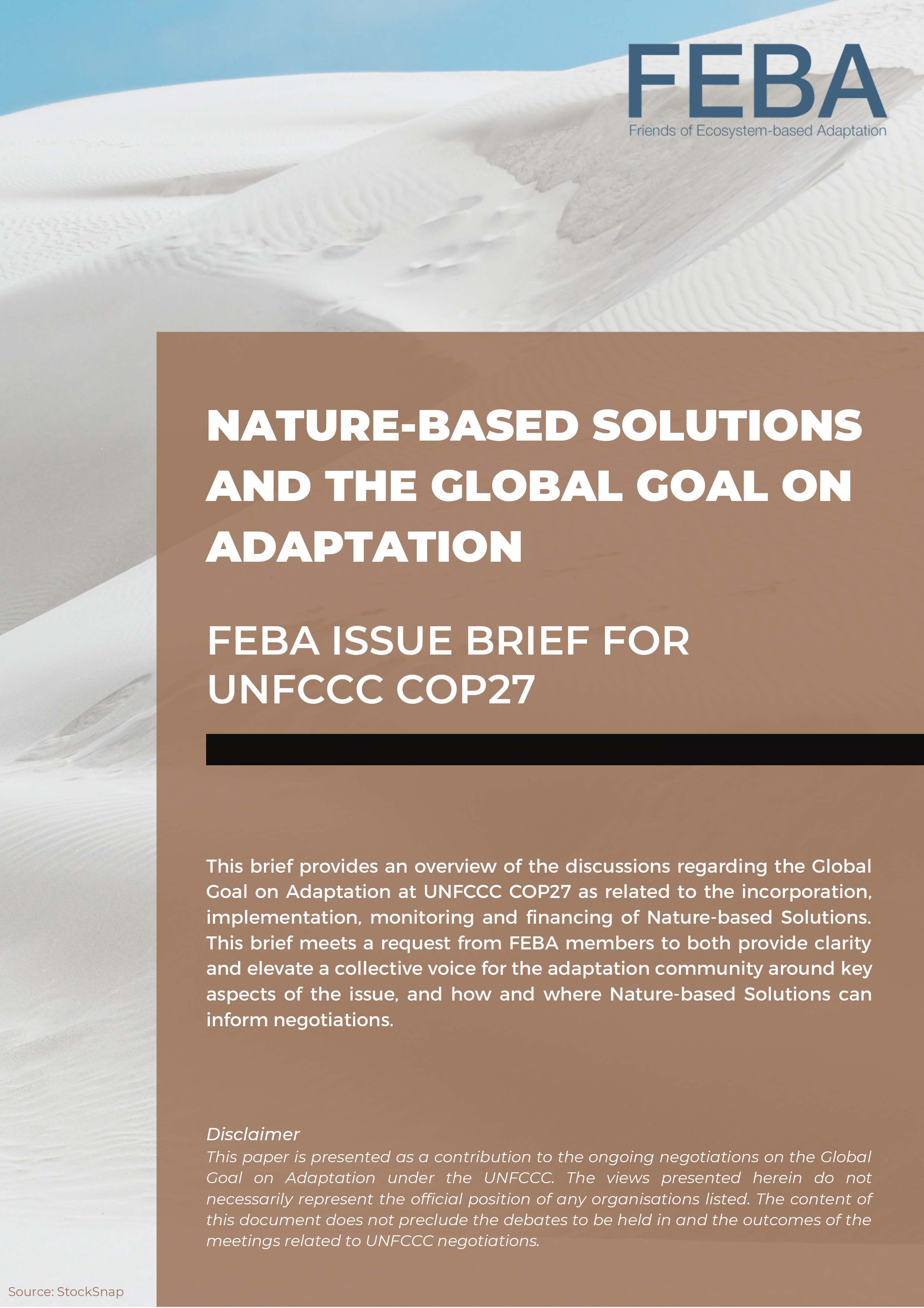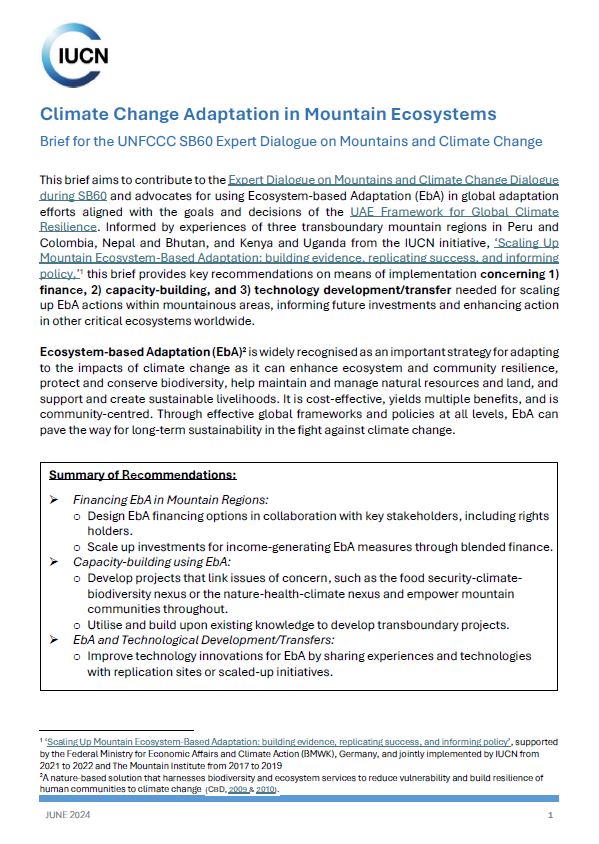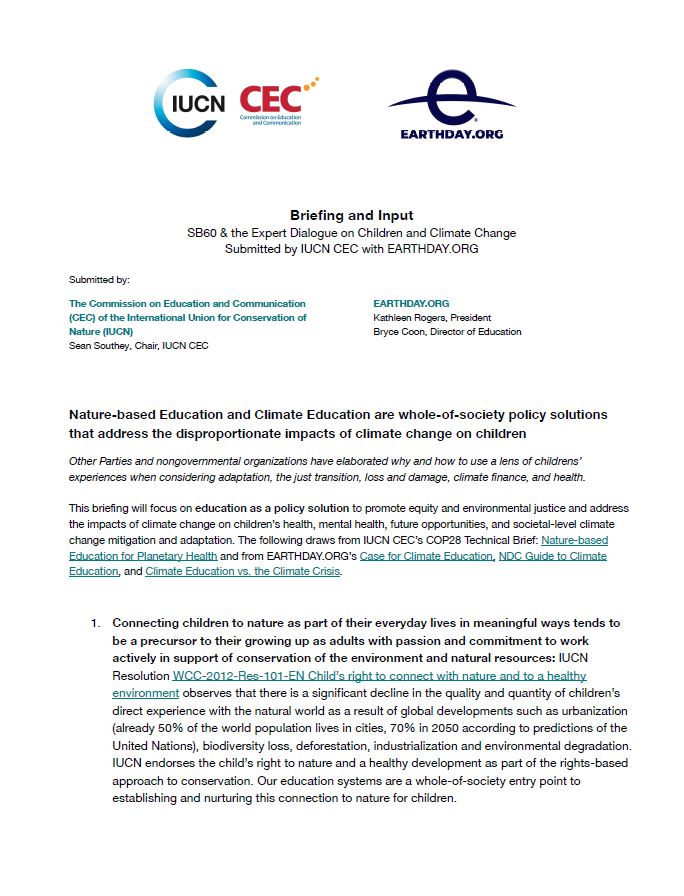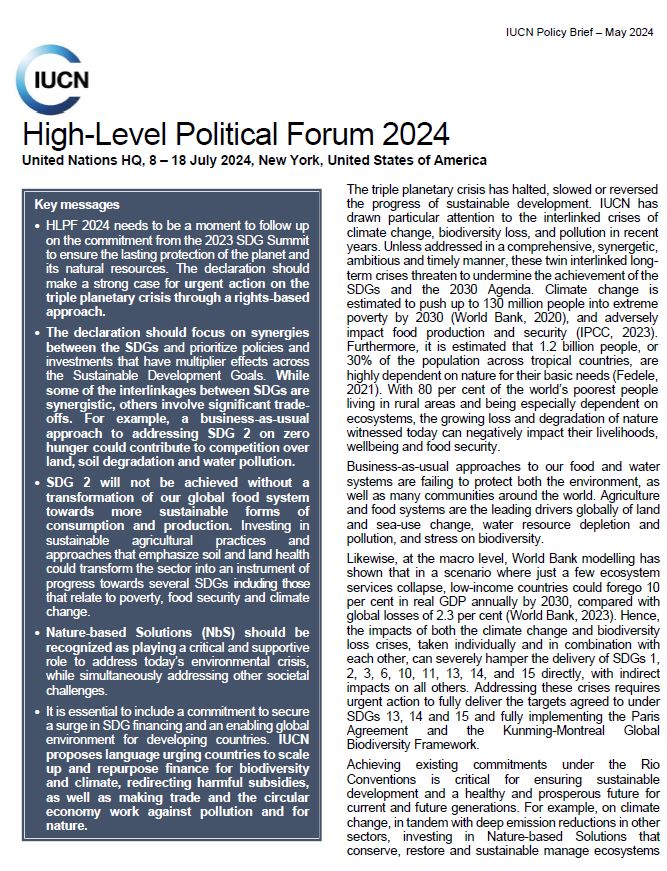Nature-based Solutions and the Global Goal on Adaptation: Launch of Friends of EbA Issue Brief for UNFCCC COP27
Nature-based Solutions for adaptation - consisting of a wide range of ecosystem management activities, such as the sustainable management of forests, grasslands, and wetlands, that increase the resilience and reduce the vulnerability of people and the environment to climate change - offer a critical pathway to define and implement an effective Global Goal on Adaptation and drive and enhance countries’ adaptation actions. The Friends of EbA network has published an issue brief for UNFCCC COP27 to provide clarity around the Global Goal on Adaptation and the incorporation, implementation, monitoring and financing of Nature-based Solutions in this context.
The Global Goal on Adaptation (GGA) was established under the Paris Agreement to enhance climate change adaptation by increasing awareness of and funding towards countries’ adaptation needs in the context of the 1.5/2°C goal of the Paris Agreement. However, unlike the clear 1.5°C target for global mitigation, adaptation is primarily a local activity and as such, a global target has been challenging to establish. At COP26, Parties established the 2022-2023 Glasgow-Sharm el-Sheikh (GlaSS) Work Programme on the Global Goal on Adaptation to define the key elements of the goal, including the methodologies, indicators, metrics, and data sources to support the assessment of overall adaptation progress.
Negotiations around the Global Goal on Adaptation currently focus on what metrics and indicators can be used at both global and local levels to effectively monitor collective progress, while incorporating and addressing outstanding concerns on bridging the gap between the local- and context- specificity of adaptation and the need to track it at a global scale.
The local context of adaptation outcomes is underpinned by building the resilience of ecosystems and local communities. The IPCC Working Group II report on Impacts, Adaptation and Vulnerability, released in early 2022, drew attention to the interlinkages of climate resilience, ecosystem integrity, biodiversity, and human livelihoods and well-being – and noted that Nature-based Solutions (NbS) offer feasible and effective options to reduce vulnerabilities and risks to people and nature and strengthen the resilience of social and natural systems against climate change.
For example, healthy coastal wetlands can protect against coastal erosion and provide a buffer against sea level rise and storm surge, river systems and forest ecosystems can store water and reduce erosion, and urban greening can support local cooling. Collectively, NbS have the potential to reduce the intensity of climate hazards by 26 percent, representing protection against the economic cost of climate change by USD 104 billion by 2030 and USD 393 billion by 2050.
Investment in Nature-based Solutions provides one of the most cost-effective means to build climate resilience for vulnerable communities and the ecosystems they depend on. NbS can address climate hazards and build resilience while providing co-benefits for biodiversity, carbon storage, livelihood security and sustainable development.
The paper explores how current knowledge from adaptation practitioners working on NbS can be leveraged in support of both setting and achieving the Global Goal on Adaptation – across monitoring and evaluation, capacity building and technology transfer, and increasing finance.
Enhancing implementation and support for NbS can help to both define and achieve the Global Goal on Adaptation as part of the negotiations during UNFCCC COP27. This report encourages:
(1) recognizing and integrating the role of ecosystems for building climate resilience;
(2) strengthening and creating the enabling conditions for adaptation action, including increasing overall investment on adaptation finance and specifically finance for NbS; and
(3) building on the existing portfolio of work on monitoring & evaluation of NbS for adaptation, with targets and indicators that align with the SDGs and the Global Biodiversity Framework under the Convention on Biological Diversity in order to create synergies and minimize reporting burden.
About FEBA:
The Friends of Ecosystem-based Adaptation (FEBA) is a global collaborative network of more than 100 agencies and organisations working on EbA working jointly to share experiences and knowledge, to improve the implementation of EbA related activities on the ground, and to raise awareness and understanding of nature-based solutions in adaptation planning processes and multilateral policy frameworks. The CBD COP recognizes FEBA as a key partner “to support Parties in their efforts to promote ecosystem based approaches to climate change adaptation” (Decision 14/5).” IUCN serves as the FEBA Secretariat.




